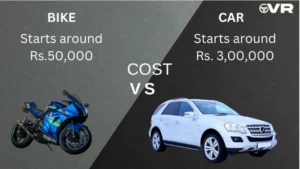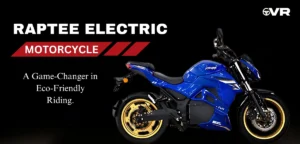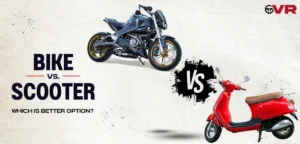As India continues to urbanize at a rapid pace, the choice between a bike and a car becomes increasingly relevant. The country’s roads are known for their diversity—ranging from congested urban streets to rural pathways—and the decision of which vehicle to choose can significantly impact your daily life. In 2024, with the ongoing advancements in transportation technology and changing urban geographies, it’s crucial to weigh the pros and cons of car vs bike carefully. Let’s explore the car vs bike key factors that can help you make an informed decision.
Cost and Affordability
One of the most significant considerations for any vehicle purchase is the cost. Bikes generally have the upper hand when it comes to affordability. The initial purchase price of a bike is much lower than a car. For instance, you can purchase a reliable bike for as little as ₹50,000 to ₹1,50,000, while even a basic car usually starts around ₹3,00,000 and can go well into several lakhs for more advanced models.

Beyond the initial cost, ongoing expenses like maintenance, fuel, and insurance are also more economical for bikes. Insurance premiums for bikes are typically lower, and the cost of maintenance and spare parts is relatively inexpensive. In terms of financing, bike loans are easier to obtain and usually come with lower interest rates compared to car loans.
This makes bikes an attractive option for young professionals, students, and those looking to minimize their financial burden. However, it’s important to note that while bikes are more affordable upfront, they might not offer the same long-term value as cars, especially if you’re looking for a vehicle that can accommodate a growing family or carry larger loads.
Fuel Efficiency
Fuel efficiency is a critical factor for daily commuters, especially with fluctuating fuel prices. Bikes are known for their superior fuel efficiency, with most models offering a mileage of 40 to 70 km/l, depending on factors such as engine capacity, riding style, and maintenance. This makes bikes an excellent choice for those who frequently travel long distances or commute daily in cities where traffic congestion is normal.
On the other hand, cars, while less fuel-efficient, have made strides in recent years with the introduction of hybrid and electric models. Traditional petrol and diesel cars generally offer a mileage between 15 to 25 km/l, but hybrid ones can significantly improve fuel efficiency.
Electric cars, though initially more expensive, have zero fuel costs and can be an environmentally friendly option for those who have access to charging infrastructure. While the upfront cost is higher, the long-term savings on fuel and maintenance can make them a viable alternative for eco-conscious consumers.
Traffic and Parking
India’s urban areas are notorious for traffic jams, especially during peak hours. In such scenarios, the agility of a bike becomes a significant advantage. Bikes can easily navigate through narrow lanes, bypass long queues of cars, and take alternative routes that may not be accessible to larger vehicles.

This ability to operate through tight spaces can save a considerable amount of time and reduce the stress of daily commuting. Parking is another area where bikes have a clear advantage. Finding parking space in crowded city centers can be a nightmare for car owners.
Bikes, being smaller, require less space and can often be parked in areas where cars cannot fit. This not only saves time but also reduces the frustration of hunting for a parking spot. However, it is worth noting that the convenience of bike parking comes with some risks, such as theft or damage, particularly in areas without secure parking facilities.
Comfort and Safety
When it comes to comfort, cars are the obvious winners. They offer a range of amenities that bikes simply cannot match—air conditioning, sound systems, comfortable seating, and protection from weather conditions.
This makes cars particularly appealing for long-distance travel, family outings, or driving in extreme weather conditions. Moreover, cars provide more space for passengers and luggage, making them a more versatile option for those who need to transport goods or travel with family.
Safety is another area where cars excel. Cars are generally safer than bikes, offering better protection in the event of an accident. Modern cars come equipped with a range of safety features such as airbags, ABS (Anti-lock Braking System), electronic stability control, and advanced driver assistance systems (ADAS).
While bikes have also made advancements in safety with features like ABS, improved suspension systems, and better lighting, they still cannot match the level of protection that a car offers.
Environmental Impact
As the world becomes increasingly conscious of environmental issues, the impact of our transportation choices on the planet is an important consideration. Bikes are generally more environmentally friendly than cars due to their smaller carbon footprint.

They consume less fuel and emit fewer pollutants, which is crucial in a country like India, where air quality is a significant concern. With the increasing focus on sustainability, choosing a bike can contribute to reducing air pollution and conserving fuel resources.
However, the environmental impact of bikes must be weighed against their safety and comfort, particularly in adverse weather conditions where a car might be a safer and more comfortable choice.
Conclusion
Ultimately, the choice between a car vs bike comes to your lifestyle and personal preferences. If you prioritize cost-effectiveness, fuel efficiency, and the ability to drive through traffic smoothly, a bike might be the ideal choice. Bikes are particularly well-suited for solo commuters, students, and those who primarily travel within city limits.
On the other hand, if comfort, safety, and the ability to carry more passengers or luggage are your top priorities, a car would be more suitable. Cars offer convenience that bikes cannot, making them the better option for families, long-distance travelers, and those who frequently drive in extreme weather conditions.
Also Read: Hyundai Creta vs. Kia Seltos
Frequently Asked Questions
1. How do electric bikes compare to traditional bikes and cars?
Electric bikes offer a middle ground between traditional bikes and cars. They are more environmentally friendly and cost-effective than cars, and they provide a quieter, smoother ride compared to traditional bikes. However, they may have a higher initial cost and require charging infrastructure.
2. How does the availability of public transportation affect the decision between a car vs bike?
In areas with well-developed public transportation, owning a bike can complement the use of buses, trains, and metros, providing a convenient way to cover short distances. In contrast, cars might be more suitable in areas with limited public transportation options.
3. How does the resale value of bikes compare to cars?
Cars often have a higher resale value compared to bikes. However, the resale value of both depends on factors like brand, model, condition, and market demand. Premium bikes can also retain good resale value.








Leave a Reply